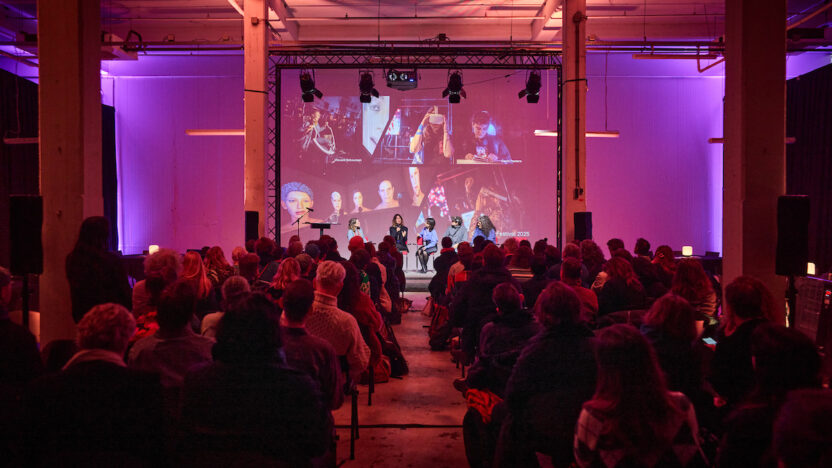“The right to dream”: Gabriel Mascaro on his HBF-supported features Neon Bull and The Blue Trail
Celebrating the launch of the HBF+Brazil scheme, we spoke to Recife-born filmmaker Gabriel Mascaro about the impact of HBF, CineMart and IFFR support on his career. Neon Bull (IFFR 2016) is now available to stream on IFFR Unleashed, and The Blue Trail will be released in Dutch cinemas from 18 September.
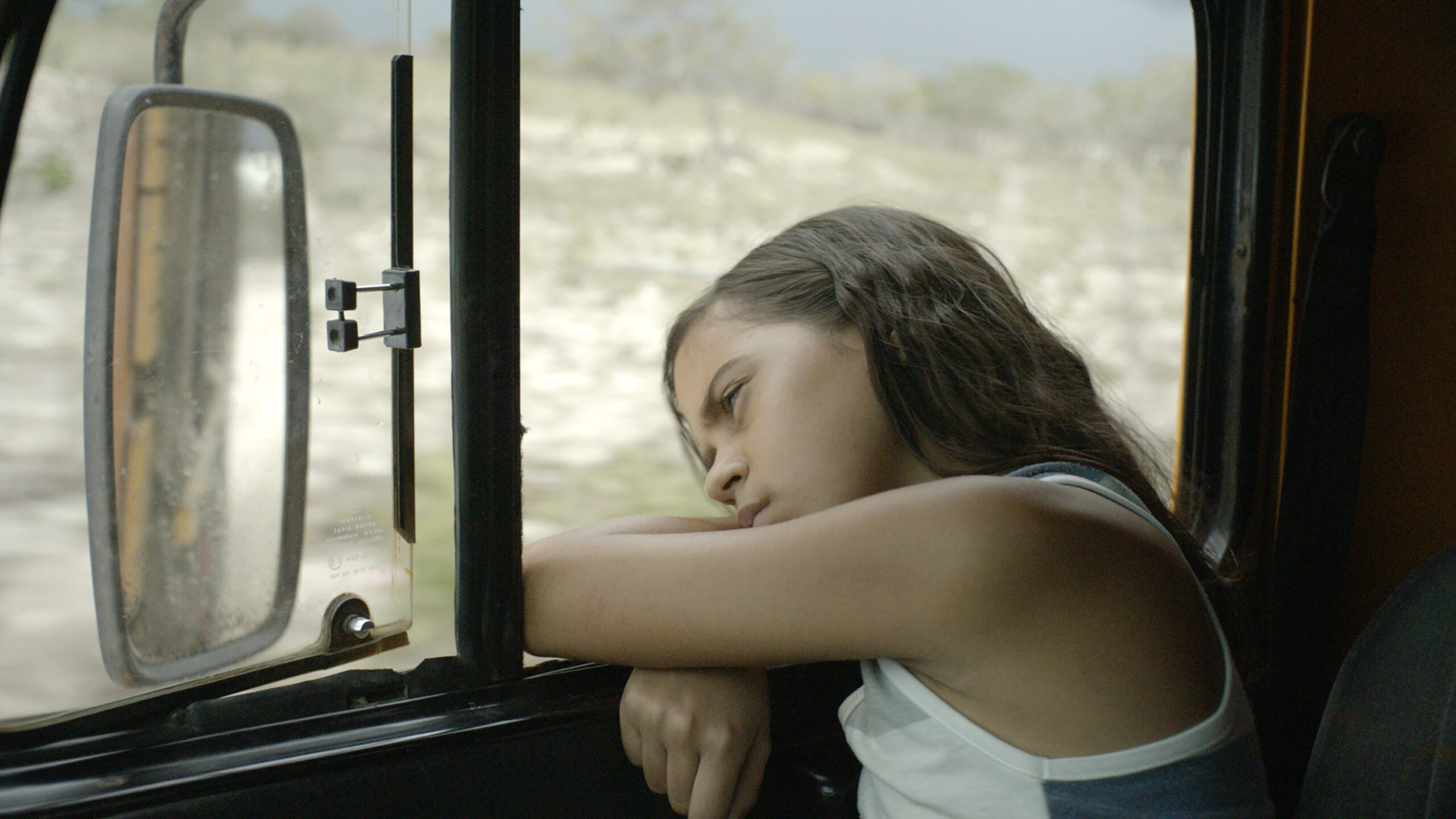
Deep in the heart of the Amazon on a psychedelic trip, Tereza stumbles into a riverside casino. A frenzied, sweating crowd places bets on an underwater duel between two fish, their cascading fins carrying all the drama and beauty of the fans of flamenco dancers. It’s one of the most engrossing images in Brazilian filmmaker Gabriel Mascaro’s latest feature, The Blue Trail (O último azul), supported by the Hubert Bals Fund and presented at CineMart, which won the Silver Bear at the 2025 Berlinale.
“I was trying to portray a contemporary Amazon.”
This lucid meeting of beauty and brutality is one of many contradictions Mascaro wants to bring to the surface in his work. Animals and their representations are key contributors to this in The Blue Trail, from the sight of an industrial alligator meat processing plant, to the blue snail whose mucus sends recipients on psychedelic journeys.
The Amazon is usually either portrayed as a pure, isolated utopia, or a corrupted dystopia that symbolises all the environmental destruction in the world, Mascaro explains. “I was trying to portray a contemporary Amazon where you could face the contradictions of the contemporary and the appropriation of capitalism inside of these forests.”

Set in a near-future Brazil, The Blue Trail sees its 77-year-old protagonist Tereza reject an official government order to relocate to a senior housing colony, setting off on a transformative journey across the Amazon. Rejecting reductive portrayals of the Amazon wasn’t the only condescending viewpoint Mascaro sought to redress. “Literature and cinema almost never allow elderly bodies to be the protagonists of self-discovery.”
Inspired by his grandmother’s decision to take up painting at 80 years old, he wanted to reject the portrayals of the elderly as only depositories of the past or fixated on death. “I wanted to place the elderly body in a state of drift – something we usually associate with youth. That became my starting point, and over time, the story evolved into something almost dystopian, but still with a utopian, affectionate energy.”
“You see something really beautiful, something tender. There’s a kind of ballet-like quality in the way the horses move.”
Central to this utopia was creating “a film about the right to dream.” Almost ten years previous, his first HBF-supported feature Neon Bull (IFFR 2016) – winner of the Orizzonti Special Jury Prize in Venice 2015 and Honourable Mention in Platform at TIFF 2015 – is also full of dreams. Its main character, the cowhandler Iremar, dreams of leaving the rodeo in the north-east of Brazil and becoming a fashion designer. For the time being, he tends to the bulls, dusting their tails before they’re sent out to be toppled by horseriders in front of the crowds, and makes erotic costumes for the truck-driving mother Galega.
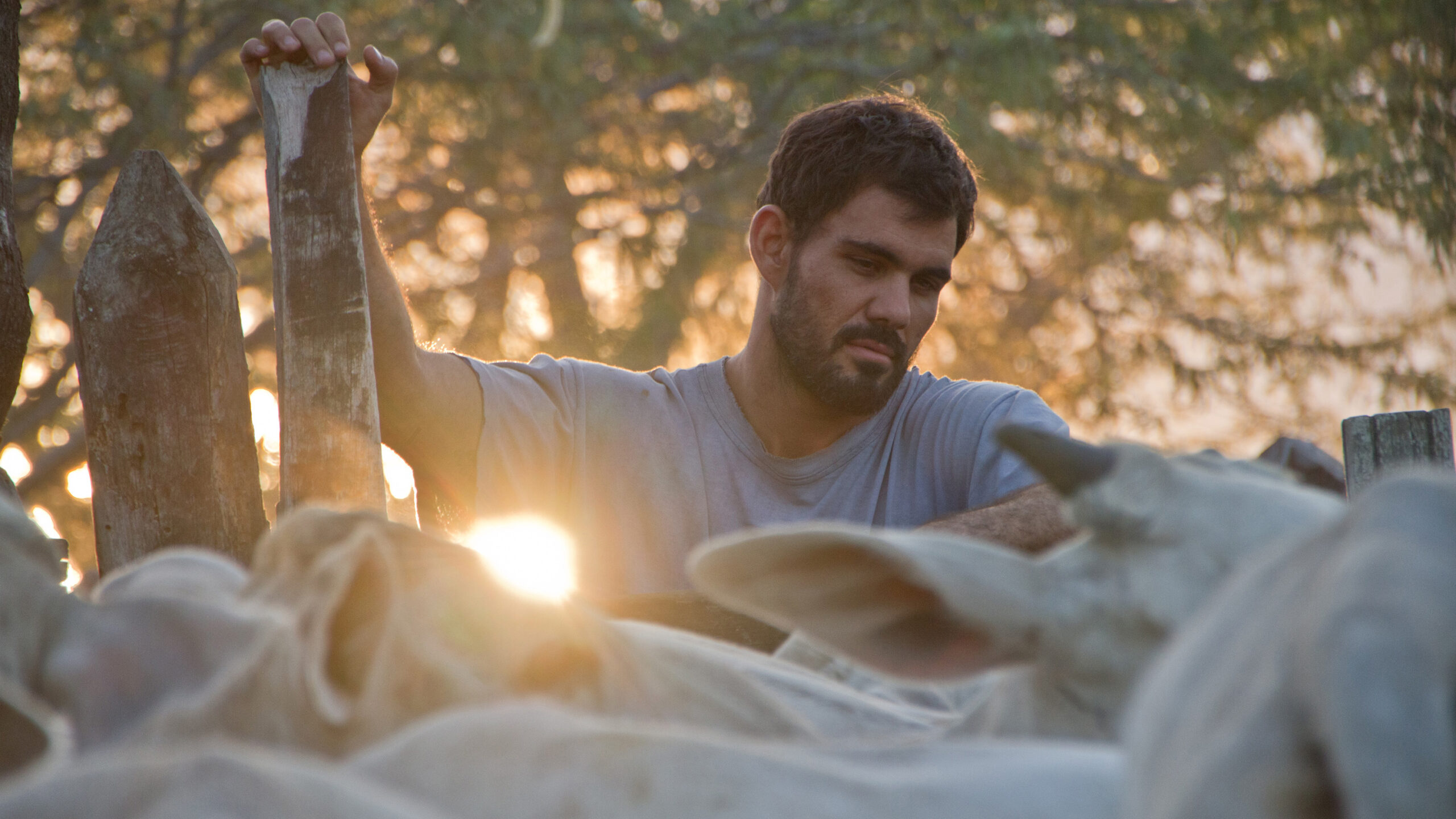
Mascaro foregrounds the gentle, affectionate and erotic moments in what would otherwise be considered a rough and dusty setting, always laying out the contradictions, he explains. “At times, the film shows how violent the local culture can be toward animals – the bulls, the horses, and all of these very aggressive rituals. But at the same time, you see something really beautiful, something tender. There’s a kind of ballet-like quality in the way the horses move.”
Supported multiple times by the Hubert Bals Fund and presented at CineMart in 2011 and 2017, both Neon Bull and The Blue Trail followed non-linear development paths. The Blue Trail took over a decade to make, evolving through feelings and urgencies, rather than deadlines. For this, genuine intent is what matters, Mascaro explains.
“I often tell this to young filmmakers when I’m teaching or giving talks about filmmaking: a lot of people write a director’s statement just to get funding – just a bunch of words to tick a box. But for me, the most important thing as a filmmaker is that the director’s point of view isn’t just a formality. Sometimes, it’s even more important than the actual story when applying for a fund.”
“There’s only one fund that I felt ever really trusted me and trusted the time I needed to develop.”
Mascaro says HBF Development funding and its lack of strict stipulations, is what meant this process could work. “One of my great memories about this whole process was that there’s only one fund that I felt ever really trusted me and trusted the time I needed to develop, and that was the Hubert Bals Fund.” Over ten years, the Fund’s development support allowed for research, and collaboration, including a team of four writers on The Blue Trail, before Netherlands Film Fund+HBF: Co-production Support in 2020 further bolstered the finances via the Dutch co-producer Viking Film. “The HBF helped keep the idea alive.”
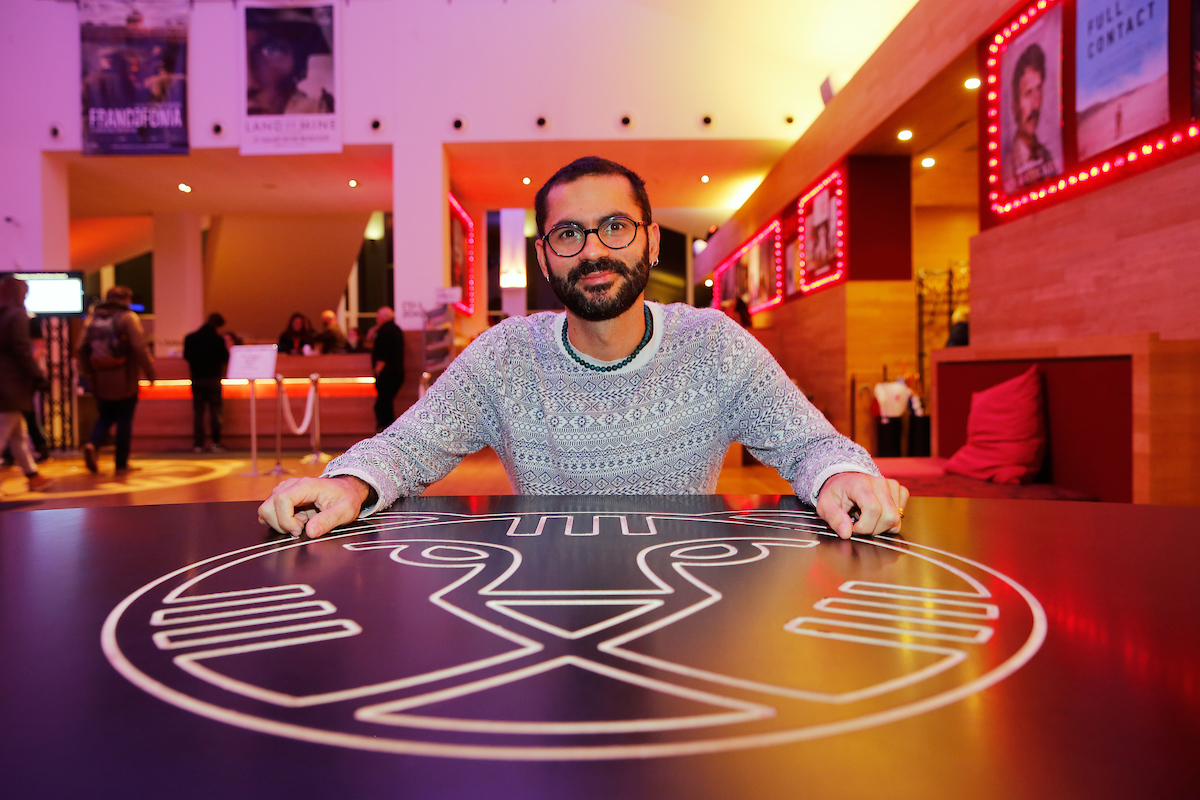
The relationship began long before his first funding application. “When I first started studying film, I kept seeing the brand of Hubert Bals Fund in a few movies that really made an impression on me. I didn’t understand anything about the cinema circuit back then, but I kept seeing the same fund mentioned in many of the great films I was watching.” Getting Neon Bull supported for development in 2010 then carried an extra significance. “In some way, I learned a lot about cinema from HBF movies, even when I didn’t know anything about the HBF.”
“The encounters feel truly sincere.”
Neon Bull’s presentation at CineMart in 2011 led to a creative partnership with Dutch co-producer Marleen Slot of Viking Film, one of a number of international creatives – like Netherlands-based sound mixer Vincent Sinceretti and Neon Bull’s Robby Müller Award-winning cinematographer Diego García – that opened Mascaro up to new ways of working. “I really recommend that people be open to being touched by different creative perspectives. I’m not the type of director who’s afraid of working with different people, I like to be faced with different points of view.”
The open, unpretentious atmosphere of CineMart and IFFR is crucial to these exchanges. “I really love IFFR because you don’t feel the same pressure as at a big festival. People are very relaxed and not pretending to be overly busy, so the encounters feel truly sincere.”
It’s this same sincerity and affection with which Mascaro approaches his subjects that makes his work so vital. From the rural vaqueiros of Neon Bull to the later-in-life rebels of The Blue Trail, the contradictions of contemporary Brazil are woven into neon-soaked dreams – dreams so seductive, you’ll not want to wake up.
Neon Bull is now available to stream on IFFR Unleashed as part of the HBF+Brazil collection – The Blue Trail will be released in Dutch cinemas from 18 September.
HBF+Brazil: Co-development Support
Together with its partners RioFilme, Spcine and Projeto Paradiso, the Hubert Bals Fund has launched the HBF+Brazil: Co-development Support initiative, dedicated to supporting the early development of projects by second- and third-time Brazilian filmmakers. The application deadline for the pilot edition is 15 September 23.59 CEST.

by Fraser White
A list with articles
-
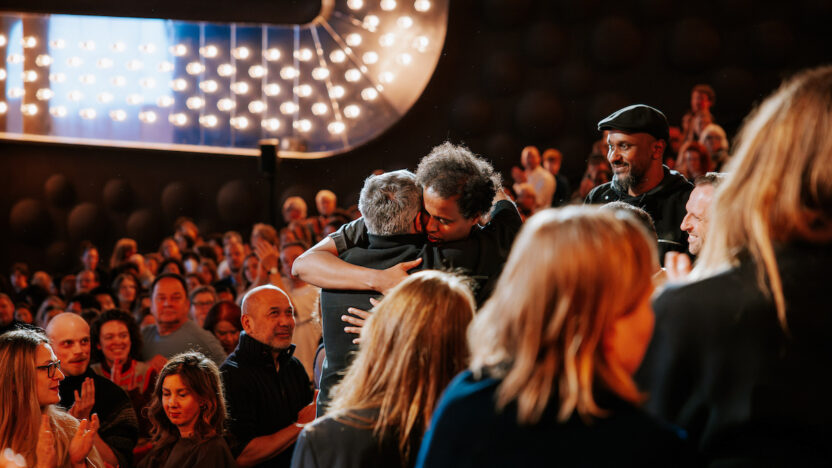
IFFR closes its 55th edition celebrating an uptick in new, younger audiences and industry attendees
Published on:-
News
-
Press release
-
-
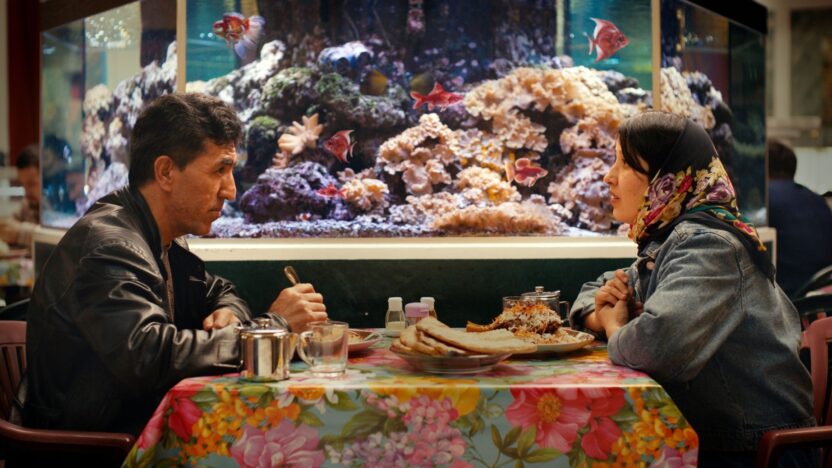
Shahrbanoo Sadat’s No Good Men opens Berlinale 2026 among strong HBF and CineMart lineup
Published on:-
CineMart
-
Hubert Bals Fund
-
IFFR Pro
-
-

